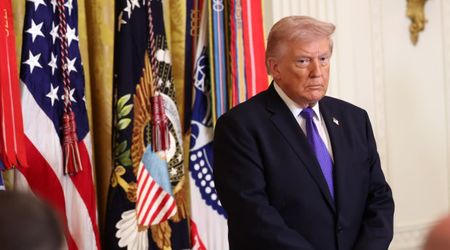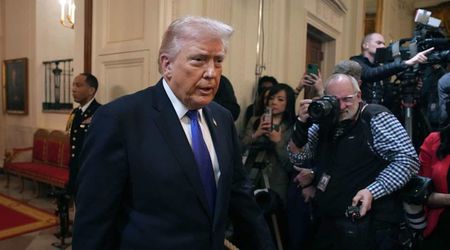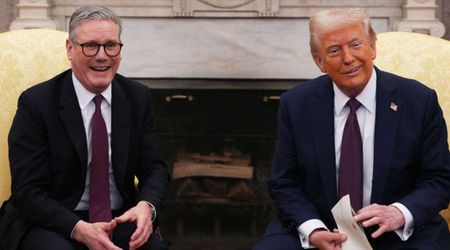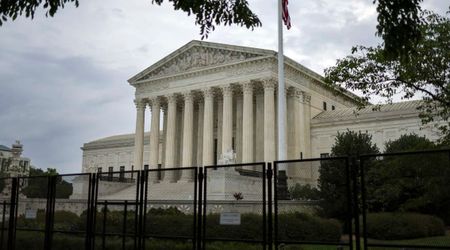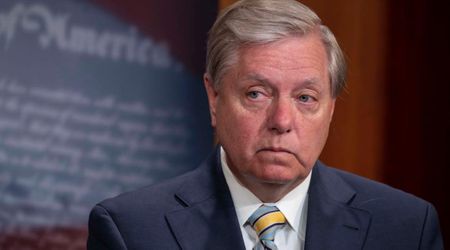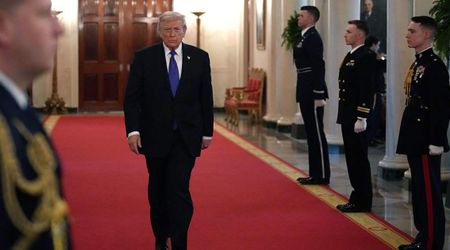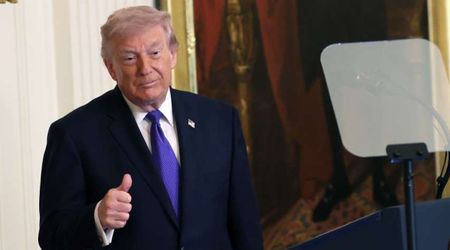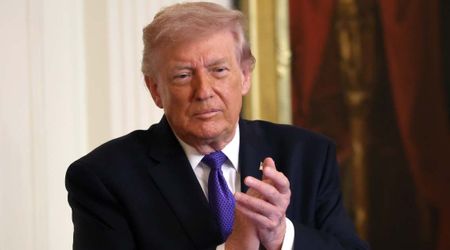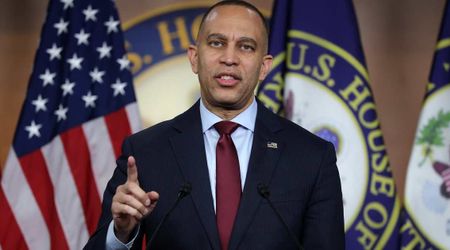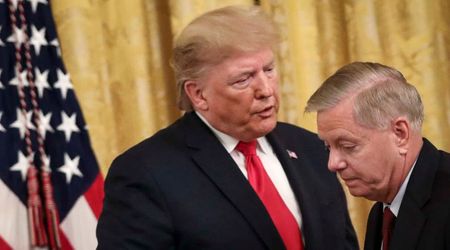'As dumb as Biden': Justice Ketanji Brown Jackson slammed for saying Trump claims could turn Oval Office into 'seat of criminality'
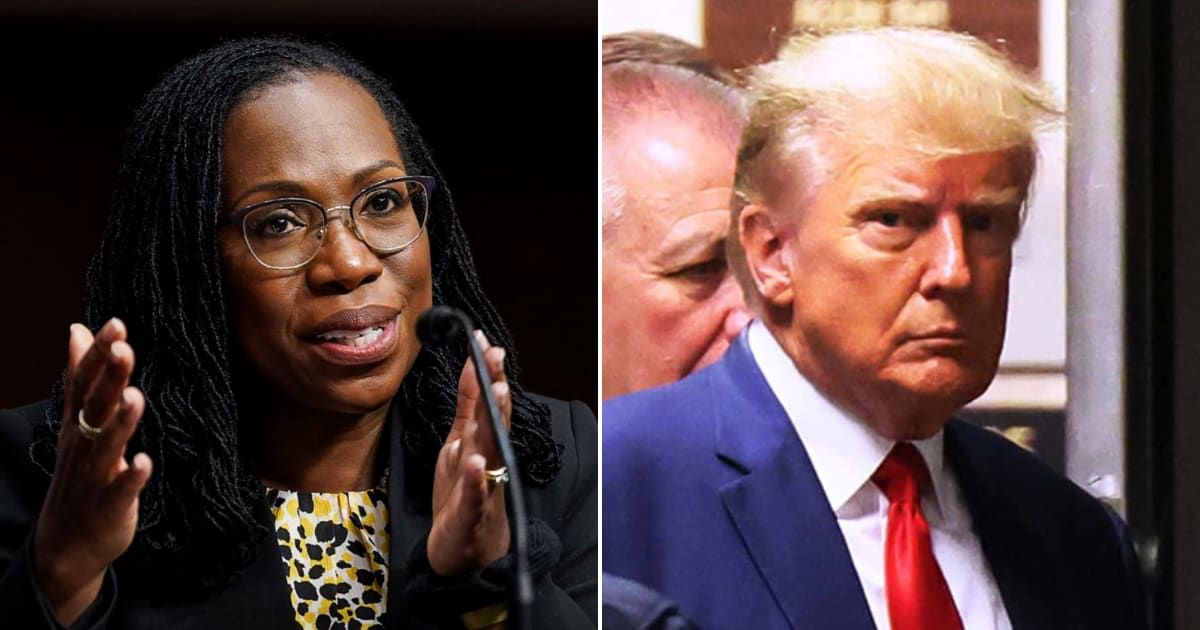
WASHINGTON, DC: In a pivotal session at the Supreme Court on Thursday, April 25, Justice Ketanji Brown Jackson challenged arguments put forth by former President Trump's legal team, cautioning against a narrative that could potentially transform the Oval Office into what she termed a "seat of criminality."
The proceedings centered around Trump's assertion of immunity from prosecution for actions taken during his tenure as president, igniting a heated debate on the scope of presidential power and accountability.
Jackson's vigorous questioning
Jackson, a nominee by President Biden, questioned the rationale behind shielding the president from legal repercussions for potentially unlawful conduct.
She pointed out that presidents have access to elite legal counsel to ensure their actions comply with the law, emphasizing the inherent responsibility of the office to uphold legal standards.
“Why would we have a situation in which we would say that the president should be making official acts without any responsibility for following the law?” she asked.
Jackson voiced her apprehension regarding the notion that the presidency could serve as a haven for criminal activity.
“I think that we would have a really significant opposite problem if … someone with those kinds of powers, the most powerful person in the world with the greatest amount of authority, could go into office knowing that there would be no potential penalty for committing crimes,” she said.
“I’m trying to understand what the disincentive is from turning the Oval Office into, you know, the seat of criminal activity in this country.”

The crux of the debate revolved around distinguishing between personal and official acts of the president. Trump's defense posited that official actions carried out in the capacity of the presidency should be shielded from prosecution, framing legal accountability as a hindrance to presidential authority.
However, Jackson and other liberal justices contested this assertion, asserting that immunity from prosecution could potentially incentivize misconduct for personal gain under the guise of official duties, The Hill reported.
In a notable exchange, Justice Sonia Sotomayor challenged Trump's attorneys on the implications of unfettered presidential immunity, raising concerns about scenarios where personal interests supersede official responsibilities.
“He's doing it for personal gain,” Sotomayor said of Trump. “And isn't that the nature of the allegations here? That he's not doing these acts in furtherance of an official responsibility. He's doing it for personal gain.”
Roberts' hypothetical and conservative justices' perspectives
The debate also delved into the intricacies of defining official versus personal acts of the president. Chief Justice John Roberts and other justices grappled with delineating the boundaries between actions undertaken in the public interest and those motivated by personal benefit. “If you say you have to expunge the official part, how does that go forward?” Roberts asked.
The complexity of this distinction underscored the challenges in adjudicating presidential immunity claims and the potential implications for future administrations.
Amidst the legal deliberations, conservative justices expressed varying degrees of support for presidential immunity, with Justices Brett Kavanaugh and Neil Gorsuch advocating for clear statutory guidelines to govern presidential conduct. “So that the president’s on notice and can conduct himself or herself accordingly,” Kavanaugh said.
Michael Dreeben, the DOJ attorney for the special counsel, argued a president should not be able to evade any criminal charges after his tenure.
“Such presidential immunity has no foundation in the Constitution,” he said. “The framers knew too well the dangers of a king who could do no wrong. They therefore devised a system to check abuses of power, especially the use of official power for private gain.”
But Justice Samuel Alito expressed skepticism about the efficacy of safeguards against potential abuses of presidential power.
“Presidents have to make a lot of tough decisions about enforcing the law,” Alito said. “Did I understand you to say, ‘Well, you know, if he makes a mistake, he makes a mistake. He's subject to the criminal laws just like anybody else’? You don’t think he’s in a peculiarly precarious position.”
Dreeben countered by saying a president enjoys access to legal advice ahead of making decisions and is obligated to be faithful to US laws and the Constitution, Spectrum News reported.
Social media backlash
On social media, however, it was Justice Jackson who faced backlash for suggesting Trump's claims risk turning the Oval Office into a "seat of criminality."
"A DEI hire & as dumb as Biden," one posted on X.
"Well, she isn't a judge, but an activist... So there's one reason," another wrote.
"She doesn't know what a 'woman' is soooo," someone else quipped.
"Hope Obama and Bush are ready for their turn in court if SCOTUS rules that they now don’t have immunity for their war crimes," another alleged.
Well, she isn't a judge, but an activist... So there's one reason 👌
— Based Shuey 🇺🇸🇨🇦 (@shuey227) April 25, 2024
She doesn't know what a "woman" is soooo...🤔🤦🏼♂️😂🤣😂
— Brian Morris (@BrianMo46164471) April 25, 2024
Hope Obama and Bush are ready for their turn in court if SCOTUS rules that they now don’t have immunity for their war crimes.
— Nick Titan🇺🇸 (@nicktitanmill) April 25, 2024
This article contains remarks made on the Internet by individual people and organizations. MEAWW cannot confirm them independently and does not support claims or opinions being made online.

